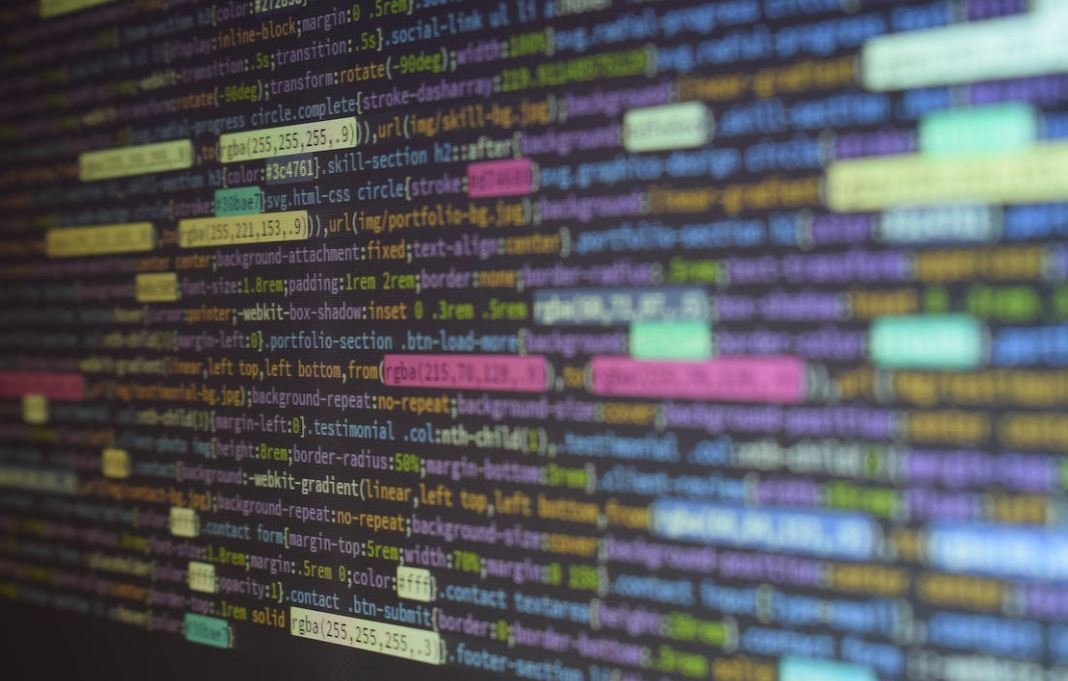AI Issues Right Now
Artificial Intelligence (AI) is revolutionizing various industries, but it also brings a range of challenges and concerns that need to be addressed. This article aims to shed light on some of the key issues surrounding AI today.
Key Takeaways:
- AI offers immense potential but raises ethical, social, and economic concerns.
- Data privacy and security are critical considerations when dealing with AI.
- Algorithmic biases can perpetuate existing inequalities in society.
- Transparency and accountability in AI decision-making are crucial.
- The impact of AI on jobs and the workforce is a topic of ongoing debate.
**One major concern with AI** is the potential bias embedded in algorithms. While algorithms can provide efficient and effective solutions, they can also perpetuate existing social inequalities. For example, if historical data used to train an AI model contains biases, the model may produce biased results. *Efforts should be made to ensure fairness in AI systems and prevent unintended discrimination*.
**Data privacy** is another critical issue related to AI. With the vast amount of personal data collected, processed, and utilized by AI systems, it becomes crucial to safeguard individuals’ privacy. *Regulations and robust security measures should be in place to protect sensitive information*. Breaches can lead to severe consequences such as identity theft and unauthorized access to personal data.
**Algorithmic transparency** is an essential element in gaining public trust in AI systems. Users should have access to meaningful information about how AI-based decisions are made. This includes understanding the underlying data used, the logic behind the algorithms, and the possible biases present. *Openness and transparency are key for fostering trust and accountability*.
Tables:
| Domain | Biased Outcome | Potential Impact |
|---|---|---|
| Recruitment | Preference for candidates of a specific gender or race | Discrimination in job hiring |
| Policing | Targeting specific neighborhoods based on biased historical crime data | Unfair treatment and profiling |
| Finance | Approving loans primarily for certain socio-economic groups | Excluding deserving individuals from financial services |
The **impact of AI on jobs** and the **future of work** is a subject of ongoing debate. While AI promises increased automation and productivity, it also raises concerns about job displacement. Some argue that AI technology will lead to job losses, while others believe it will create new job opportunities. *Finding a balance between human workers and AI systems will be crucial for the future workforce*.
**AI governance** is a key challenge in ensuring responsible and ethical use of AI. Establishing clear policies, guidelines, and regulations can help address various issues related to AI. *International collaborations and consistent frameworks are needed to navigate the complex landscape of AI governance*.
Statistics:
| Industry | Adoption Rate |
|---|---|
| Manufacturing | 79% |
| Healthcare | 62% |
| Finance | 59% |
**AI and job creation** are not mutually exclusive. While some jobs may be automated, the emergence of AI will also require a skilled workforce to develop, maintain, and manage AI systems. Therefore, there is a need to **upskill and reskill** individuals to cope with changing job requirements. *Investments in education and training programs can help prepare the workforce for the AI-driven future*.
- Bias in AI algorithms can perpetuate societal inequalities.
- Data privacy and security must be prioritized in AI systems.
- Transparency and accountability are essential for gaining public trust in AI.
- The impact of AI on jobs is a subject of ongoing debate.
- AI governance requires clear policies and international collaboration.
Conclusion
In conclusion, while AI offers immense potential, it also presents a range of issues that require careful consideration and proactive measures. From algorithmic biases to data privacy concerns, these challenges must be addressed to ensure the ethical and responsible use of AI technology. By fostering transparency, implementing robust regulations, and investing in education, we can harness the full potential of AI while mitigating its negative impacts.

Common Misconceptions
1. AI is Capable of Human-like Intelligence
One common misconception people have about AI is that it possesses human-like intelligence. While AI has made impressive advancements in machine learning and pattern recognition, it does not possess the same level of cognitive abilities as humans. It lacks emotional intelligence, common sense reasoning, and the ability to understand context in the same way humans do.
- AI is limited in its understanding of emotions.
- AI lacks the ability to apply common sense reasoning.
- AI struggles to understand and interpret context in the same way humans do.
2. AI Will Replace Human Jobs Completely
Another common misconception is that AI will completely replace human jobs, leading to massive unemployment. While AI technologies and automation may disrupt certain job sectors and eliminate some specific tasks, it is unlikely to replace humans across all industries. Instead, AI is more likely to augment human capabilities, freeing up time for employees to focus on more complex and strategic work.
- AI may automate routine and repetitive tasks, but not all jobs can be completely automated.
- AI is more likely to assist humans and improve productivity rather than eliminate jobs entirely.
- AI can create new job opportunities and industries that don’t currently exist.
3. AI is Bias-Free and Objective
Many people falsely believe that AI algorithms are completely unbiased and objective. However, AI systems can inherit biases present in the training data, leading to biased outcomes. AI algorithms learn from large datasets, which include human biases and prejudices, thereby reflecting and even amplifying those biases in decision-making processes.
- AI algorithms can perpetuate societal biases and prejudices found in training data.
- AI systems are only as fair and objective as the data they are trained on.
- Addressing bias in AI algorithms is an ongoing challenge that requires careful monitoring and mitigation strategies.
4. AI is a Threat to Humanity
Some people have concerns about AI turning into a malevolent force that poses an existential threat to humanity. This misconception is often fueled by science fiction movies and fear-mongering headlines. While AI does raise ethical concerns and challenges, it is important to approach the development and deployment of AI technologies with responsible and ethical frameworks to mitigate potential risks.
- AI is a tool created by humans and is only as dangerous as its intended use.
- Ethical oversight and responsible development can minimize potential risks associated with AI.
- AI can be harnessed for positive societal impact, such as healthcare advancements and environmental sustainability.
5. AI Systems Understand and Interpret Human Thoughts and Intentions
Contrary to popular belief, AI systems cannot read minds or accurately interpret human thoughts and intentions. While AI can process and analyze vast amounts of data, it still lacks true understanding of human consciousness and subjective experiences. AI systems make predictions and decisions based on patterns and correlations, without truly comprehending the underlying thoughts or intentions.
- AI systems operate based on statistical patterns and correlations, not understanding human consciousness.
- AI cannot fully grasp the complexity and nuance of human emotions, thoughts, and intentions.
- AI is limited to what it has been trained on and lacks true understanding of subjective human experiences.

The Impact of AI on Job Market
As artificial intelligence continues to advance, concerns about its impact on the job market are increasing. The following table highlights the projected job losses in various industries over the next decade:
| Industry | Projected Job Losses |
|---|---|
| Retail | 2 million |
| Transportation | 3.5 million |
| Manufacturing | 4.5 million |
| Customer Service | 1.8 million |
The Bias in AI Algorithms
As AI systems heavily rely on algorithms, biases within these algorithms can have far-reaching consequences. The following table provides examples of AI bias in different domains:
| Domain | Example of Bias |
|---|---|
| Law Enforcement | Over-policing of marginalized communities |
| Hiring Processes | Prejudice against certain ethnicities or genders |
| Financial Services | Denial of loans based on biased algorithms |
| Healthcare | Misdiagnosis or underdiagnosing certain populations |
The Ethical Dilemmas of AI
The rapid development of AI has raised numerous ethical concerns. The table below outlines some of the major ethical dilemmas associated with artificial intelligence:
| Ethical Dilemma | Description |
|---|---|
| Privacy | Collection and potential misuse of personal data |
| Autonomous Weapons | Moral responsibility and accountability in warfare |
| Job Displacement | Social and economic impacts of widespread unemployment |
| Deepfakes | Manipulation and deception through AI-generated content |
AI in Healthcare
The integration of AI in healthcare has both transformative potential and associated challenges. The table below illustrates some of the applications and concerns regarding AI in healthcare:
| Application | Concern |
|---|---|
| Early Disease Detection | Accuracy of diagnoses and potential for misinterpretation |
| Smart Monitoring Systems | Security and privacy of patients’ data |
| Surgical Robots | Trust in automation and potential errors |
| Drug Discovery | Reliability and potential biases in AI-driven drug development |
The Role of AI in Education
Artificial intelligence in education presents a range of possibilities and challenges. The table below showcases some potential applications and concerns regarding AI in the educational sector:
| Application | Concern |
|---|---|
| Personalized Learning | Equity and access to educational resources |
| Automated Grading | Subjectivity in evaluating students’ work |
| Tutoring and Support | Replacing human interaction and personalized guidance |
| Learning Analytics | Protection of students’ privacy and data |
AI in Financial Services
The financial industry has been significantly impacted by the integration of AI technologies. The following table highlights some key applications and challenges of AI in financial services:
| Application | Challenge |
|---|---|
| Automated Trading | Market instability and algorithmic biases |
| Customer Service Chatbots | Limited understanding of complex customer concerns |
| Risk Assessment | Overreliance on data leading to unforeseen risks |
| Fraud Detection | False positives resulting in inconveniences for customers |
The Future of AI Regulation
Regulating AI presents a complex challenge for policymakers worldwide. The table below highlights some of the key considerations when it comes to AI regulation:
| Consideration | Explanation |
|---|---|
| Ethical Standards | Establishing guidelines to ensure ethical development and use of AI |
| Privacy Protection | Safeguarding personal data from misuse and unauthorized access |
| Transparency | Revealing the inner workings and decision-making processes of AI systems |
| Accountability | Holding developers and companies responsible for the consequences of AI |
AI and Climate Change Mitigation
AI has the potential to tackle environmental issues, including climate change. The table below showcases the applications and challenges of AI in climate change mitigation:
| Application | Challenge |
|---|---|
| Renewable Energy Optimization | Ensuring balanced distribution of energy sources |
| Smart Grid Management | Cybersecurity and resilience against hacking attempts |
| Environmental Monitoring | Managing and interpreting vast amounts of data accurately |
| Sustainable Agriculture | Accounting for local and cultural contexts in AI-driven solutions |
Artificial intelligence is revolutionizing various aspects of our lives; however, it also brings forth numerous challenges that must be addressed. From job market shifts to biased algorithms and ethical dilemmas, the impact of AI is profound. As technology continues to advance, it becomes imperative to establish regulations and guidelines to harness the potential benefits while mitigating risks. Striking a balance between innovation and responsibility is key to shaping a future where AI serves the greater good.
AI Issues Right Now
Frequently Asked Questions
- What are some current ethical concerns and challenges related to AI?
- Some current ethical concerns and challenges related to AI include data privacy and security, algorithmic bias, job displacement, and the potential misuse of AI technologies.
- How can AI contribute to job displacement?
- AI can contribute to job displacement by automating tasks that were previously performed by humans. This may result in certain industries or job roles becoming obsolete or requiring fewer human workers.
- What is algorithmic bias?
- Algorithmic bias refers to the phenomenon where AI systems produce discriminatory or unfair outcomes due to biases present in the data they were trained on or the algorithms used. This can lead to biased decision-making and perpetuate existing social inequalities.
- What steps can be taken to address algorithmic bias?
- To address algorithmic bias, it is important to ensure diversity and inclusivity in the data used to train AI systems, regularly audit and test these systems for bias, and involve multidisciplinary teams in the development and deployment of AI technologies.
- How can AI impact data privacy and security?
- AI can impact data privacy and security by collecting and analyzing large amounts of personal data. If not properly secured, this data can be vulnerable to breaches, misuse, and unauthorized access, potentially leading to privacy violations and abusive practices.
- What are the risks associated with the misuse of AI technologies?
- The misuse of AI technologies can lead to various risks, such as deepfake videos used for fraud or misinformation, AI-powered surveillance infringing on privacy rights, and autonomous weapon systems causing harm or violating ethical guidelines.
- What are some legal and regulatory challenges surrounding AI?
- Legal and regulatory challenges surrounding AI include the need to establish appropriate frameworks for liability and accountability, determining the extent of human oversight and control in AI systems, and developing laws that keep pace with rapid technological advancements.
- How can AI be harnessed for positive impact?
- AI can be harnessed for positive impact by utilizing it in areas such as healthcare for more accurate diagnoses and personalized treatments, improving efficiency in transportation and logistics, and assisting in scientific research for breakthrough discoveries.
- What role does transparency play in AI decision-making?
- Transparency in AI decision-making refers to the ability to understand how an AI system arrives at its conclusions or decisions. It is crucial for ensuring accountability, trustworthiness, and identifying and addressing any biases or errors.
- How can society ensure the ethical development and use of AI?
- Society can ensure the ethical development and use of AI by promoting interdisciplinary collaboration, fostering public dialogue and engagement, establishing clear ethical guidelines and regulations, and holding developers and organizations accountable for the impact of AI technologies.




